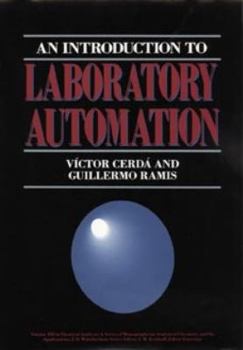An Introduction to Laboratory Automation
A fully automated lab can perform miracles of elucidation-from taking objective measurements to generating massive amounts of data in a short time to drawing conclusions using multivariant statistical methods. In this technically enhanced setting, a chemist can now conduct new types of experiments, ones that require the assimilation of large amounts of data in a short time and others that require the control of a large number of parameters simultaneously or take a long time to complete. Automating a laboratory is surprisingly inexpensive-and given the basic electronics and computer know-how-relatively simple. With this text, written by two chemists who have successfully automated their own labs, you'll be able to fully automate your laboratory, building and programming your own devices and automatic systems, using their measured, step-by-step approach. You'll learn: The basic concepts of analog and digital electronics, enabling you to select components of appropriate quality and construct simple circuits The dynamics of the simplest electronic elements-resistors, capacitors and RC circuits-and their applications, as well as diodes, rectifiers, filters, regulators, and more The basic vocabulary of bit, byte, word and digital signal, gates, latches, counters, and multivibrators The basic parts of a microprocessor-the arithmetic logic unit, the internal registers, and the control units-as well as input/output techniques Analog-to-digital and digital-to-analog conversion techniques The way interface cards can be programmed in interpreted and compiled BASIC, complete with program examples The most popular communication protocols for intercommunicating computers, instruments, and other devices The laboratory instruments and apparatus with the necessary interfaces useful in building up an automated system Laboratory robotics-from motors and position detectors to articulated arms This definitive, hands-on, and up-to-date text will allow you to smoothly automate your lab in as cost-effective and efficient a style as possible. The versatility of the tools and techniques described are suitable for professional settings as wide as the industrial lab, municipal lab, analytical services, environmental control services, and health services. An Introduction to Laboratory Automation details simply and economically-for students and professionals alike-the practical dynamics behind sciences successful mix of chemistry and computer.
Format:Hardcover
Language:English
ISBN:0471618187
ISBN13:9780471618188
Release Date:September 1990
Publisher:Wiley-Interscience
Length:336 Pages
Weight:1.40 lbs.
Dimensions:1.0" x 6.4" x 9.3"
Related Subjects
Computer Technology Science Science & Math Science & Scientists Science & TechnologyCustomer Reviews
0 rating





